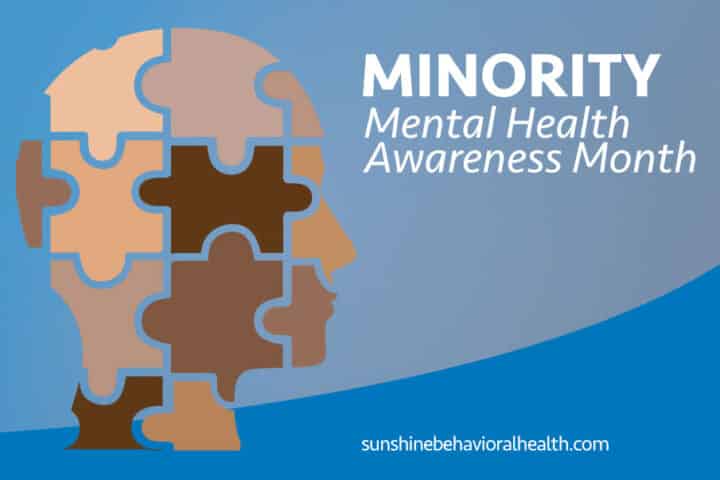
Minority Mental Health Awareness Month: Mental Health Assistance
Every July is Minority Mental Health Awareness Month, and the focus has never been more needed. With all that’s happening in the world today, almost everyone could benefit from talking with someone.
For some, it’s no big deal to find therapy or other resources when they need it. However, for too many Americans, it may be difficult to find mental health resources.
Therapy of any kind can be expensive. Specialized treatment or professionals may be more scarce in certain geographic areas. There also may be fewer mental health options that directly address the challenges faced by people who are in minority groups.
That’s why July is Minority Mental Health Awareness Month. This commemoration can help
- Educate people.
- Encourage members of minority groups to focus on their mental health.
- Offer mental health assistance.
Why Minority Groups May Avoid Seeking Mental Health Help
People who struggle with mental health issues are not crazy. The face conditions that are common. However, some minority communities view mental health assistance as shameful.
This is not the case. People struggle for different reasons.
Stress, tough situations, traumatic events, loss, and substance or alcohol abuse are just a few situations that can threaten mental health. Depression and anxiety are common mental and emotional problems, yet they are also commonly underacknowledged and thus undertreated.
It can be difficult to seek help for mental health problems. Some minority groups believe that talking about your feelings is taboo. This can make it even harder to seek needed mental health services. It’s why mental health education is so important.
Types of Mental Health Services
Since there are so many different types of mental health disorders, there are many different kinds of mental health services available.
There is no one-size-fits-all type of addiction treatment, so if one option doesn’t work, it’s important to keep looking for assistance that meets your individual needs. Some services include:
- Addiction treatment. There are need-specific and demographic-specific addiction recovery programs that range from long-term inpatient programs, to weekly meetings, to many options in between.
- Suicide prevention hotlines and websites. These can be excellent resources during emergencies. Trained counselors help clients deal with immediate emergency situations and often refer clients to additional resources.
- Assistance from religious communities. Religious communities may offer counseling options. They might cost less than other types of assistance and might provide comfort and guidance.
- Local and state services. State and local governments may offer free or reduced-cost mental health services or programs to assist specific communities.
Minority populations struggle with mental health issues just like anyone, but unlike others, they may find it more difficult to treat these problems.
If you or a loved one is struggling with any type of mental health disorder, no matter what it is, you need to know that there is help, and that you don’t need to face it alone.
Sources
minorityhealth.hhs.gov – Minority Mental Health Awareness Month
samhsa.gov – Behavioral Health Barometer (Young Adult Mental Health)
sunshinebehavioralhealth.com – Recovery in a Quiet and Welcoming Environment
suicidepreventionlifeline.org – National Suicide Prevention Lifeline
A Message From Our CEO
Medical disclaimer:
Sunshine Behavioral Health strives to help people who are facing substance abuse, addiction, mental health disorders, or a combination of these conditions. It does this by providing compassionate care and evidence-based content that addresses health, treatment, and recovery.
Licensed medical professionals review material we publish on our site. The material is not a substitute for qualified medical diagnoses, treatment, or advice. It should not be used to replace the suggestions of your personal physician or other health care professionals.





